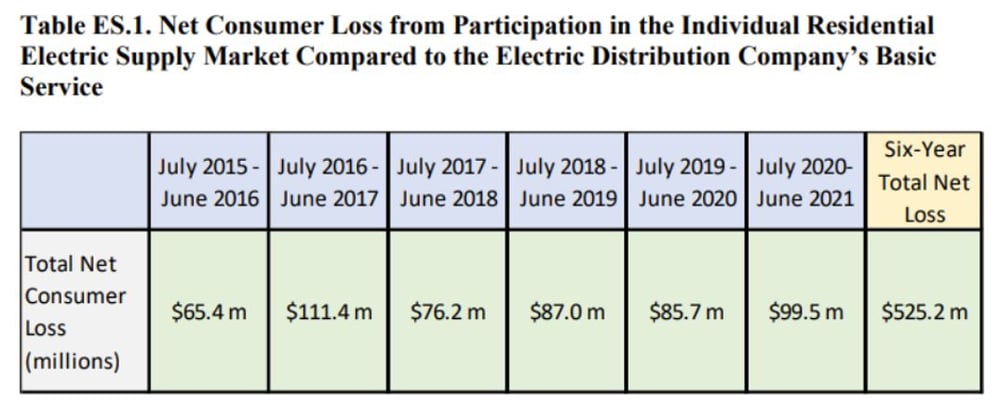There are Three Ways to Buy Green Electricity – Two Are Good and One is Bad
This is an update from previous blogs on the subjects covered here.
Have you recently received salespeople at your...
Green Energy Consumers Alliance has been supporting a bill in the Massachusetts legislature that would stop retail electricity suppliers from signing up new customers on an individual basis. The bill would not affect municipal aggregation. The legislation has been sponsored by Rep. Frank Moran and Senator Brendan Crighton in collaboration with Attorney General Campbell and with the support of Governor Healey. The bill is a common sense reaction to the fact that the Attorney General’s office has solid data showing how consumers receiving power from competitive electricity suppliers have collectively paid over a half billion dollars more over six years than if they received service from their utility. Low-income families and people of color have been disproportionally targeted and harmed.

We have additional data showing how consumers save even more money when they participate in municipal aggregation.
Given that there’s all that money at stake, we should not be surprised that the profiteer electricity suppliers are fighting back with misinformation. But maybe we should be surprised (or at least disappointed) when a Boston Globe columnist spreads that misinformation.
On November 28, the Globe’s Scot Lehigh ran an article that swallowed hook, line, and sinker the talking points of the companies trying to block the bill sponsored by Moran and Crighton. Read it yourself but please note the following as you do:
.jpg?width=1580&height=477&name=solar%20(stock).jpg)
By the way, another Globe columnist, Rachelle Cohen, got this issue right last June, basically by giving the attorney general’s work the respect it deserves.
Some things about energy are complex. This issue is damn straightforward. Please contact your legislator and ask them to support “An Act Relative to Electric Ratepayer Protections”, House bill 3196 or Senate 2106.
You can find your legislator’s contact information here.
This is an update from previous blogs on the subjects covered here.
Have you recently received salespeople at your...
Have you recently received salespeople at your door or offers in the mail from competitive electricity suppliers?...
Comments